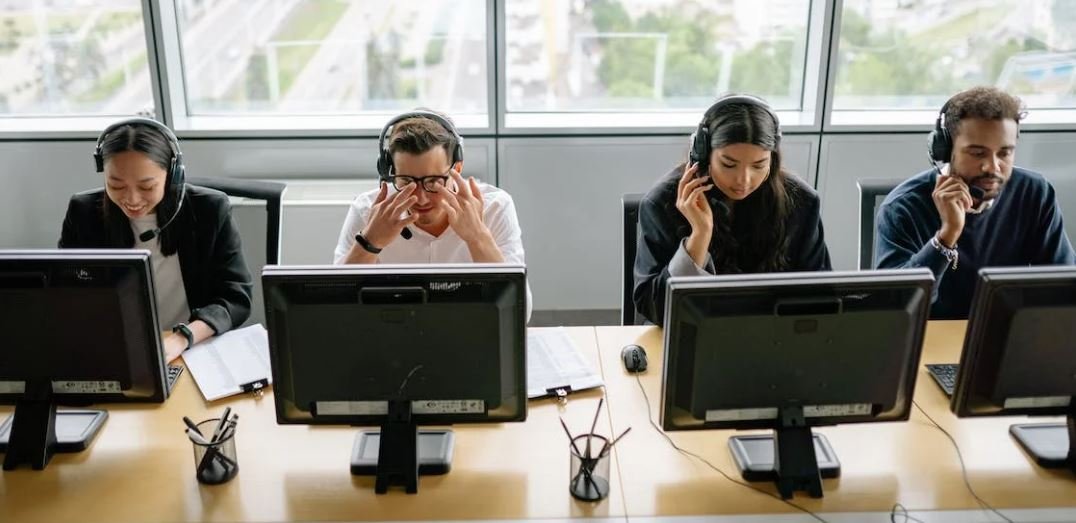Can AI Copy Your Voice?
Advancements in artificial intelligence (AI) have raised concerns about privacy and security. One area of concern is the ability for AI to copy human voices. With the increasing sophistication of voice synthesis technology, it becomes crucial to understand the capabilities and potential risks associated with AI-generated voices.
Key Takeaways
- AI technology can replicate human voices with remarkable accuracy.
- Voice cloning carries both benefits and risks.
- Protecting your voice data is crucial in preventing unauthorized use.
- Regulations and ethical guidelines are necessary to address the challenges of AI-generated voices.
**Artificial Intelligence** has made tremendous progress in mimicking human speech patterns and vocal characteristics. *Voice synthesis algorithms can analyze voice samples and generate new speech that closely resembles the original speaker*. While this technology has valuable applications in industries like entertainment and accessibility, it also raises privacy concerns.
Understanding the Risks
The ability of AI to copy a person’s voice has implications for various aspects of personal and business life. *Scammers could potentially use AI-generated voices to deceive individuals into giving sensitive information*. Politicians and public figures may also be at risk, as deepfake voice recordings could be fabricated and used to manipulate opinions or spread false information.
The Benefits of Voice Cloning
Voice cloning has promising applications in areas such as speech disorders and language learning. *AI-generated voices can be used to create personalized text-to-speech systems, allowing individuals with speech impairments to communicate more naturally*. Additionally, language learners can benefit from hearing speech patterns and pronunciation modeled by native speakers.
Protecting Your Voice Data
Protecting your voice data is crucial to prevent unauthorized use. *Be cautious when sharing voice samples online or with unverified sources that may use them without consent*. Personal voice data should be treated with the same level of sensitivity as other personal information, such as passwords or financial data.
Regulating AI-generated Voices
As the role of AI-generated voices continues to expand, regulations and ethical guidelines are necessary to address potential risks. *Governments and organizations should collaborate to establish legal frameworks that protect individuals from voice fraud or malicious use*. The development of responsible AI practices will help ensure the proper use and application of voice cloning technology.
Tables with Interesting Data
| Industry | Applications |
|---|---|
| Entertainment | Creating realistic virtual characters. |
| Accessibility | Aiding individuals with speech impairments. |
| Customer Service | Improving automated voice assistants. |
| Use Case | Impact |
|---|---|
| Speech Disorders | Enables more natural communication for affected individuals. |
| Language Learning | Provides language learners with accurate pronunciation models. |
| Voice-Enabled Devices | Enhances user experience and personalization. |
| Best Practices for Voice Privacy |
|---|
| Be cautious when sharing voice samples online. |
| Only provide voice data to trusted and verified sources. |
| Regularly review privacy settings of voice-enabled devices. |
Ethics and Future Considerations
While AI-generated voices bring significant benefits, ethical considerations must be prioritized. *Striking a balance between technological advancement and privacy protection is essential*. As AI continues to evolve, ongoing discussions and updates to regulations will help promote responsible and ethical use of voice cloning technology.
AI’s ability to copy human voices poses both opportunities and risks. By staying informed, taking precautions, and advocating for responsible AI practices, we can contribute to creating a future where AI-generated voices are used ethically and for societal benefit.

Common Misconceptions
AI and Voice Copying
One common misconception about AI is that it can flawlessly copy your voice. While AI technology has advanced significantly in recent years, it is not yet able to perfectly mimic an individual’s voice characteristics and nuances.
- AI voice replication is still a work in progress.
- AI can imitate patterns and tone, but not the unique qualities of a person’s voice.
- AI may struggle to accurately replicate accents and speech patterns.
Another misconception is that AI can effortlessly clone your voice without any input from you. In reality, AI requires a substantial amount of voice data from the target person to generate a voice clone.
- AI needs numerous voice samples to create an accurate voice clone.
- A large dataset of recordings is essential for high-quality replication.
- Generating a voice clone through AI is a complex and resource-intensive process.
Some people believe that AI voice cloning is perfect and indistinguishable from the real thing. However, even with sophisticated AI algorithms, there are often subtle differences that can be detected by a careful listener.
- AI-generated voice clones frequently lack the emotional depth of the original voice.
- Certain speech patterns or expressions may be less convincingly replicated.
- Close scrutiny can reveal slight discrepancies in intonation or rhythm when compared to the source voice.
There is also a misconception that AI voice cloning is primarily used for malicious purposes, such as impersonating others for fraud or deception. While these concerns are valid, AI voice cloning has various legitimate uses as well.
- AI voice cloning can be employed for accessibility reasons, helping individuals with speech disorders maintain their voice.
- In voice-over work, AI technology can reproduce recordings of deceased or retired voice actors for continuity.
- AI voice cloning can be used in the entertainment industry to enhance storytelling or create unique characters.
Finally, there’s a common misconception that AI voice cloning is an imminent threat. While it is essential to consider the potential risks and ethical concerns associated with AI-generated voice replication, technological advancements are accompanied by regulatory measures to prevent misuse.
- Thorough regulations and ethical guidelines can help mitigate the risks associated with AI voice cloning.
- Continued research and development will aim to address any safety concerns with the technology.
- Public awareness and education about the limitations and impact of AI can facilitate responsible and ethical adoption.

The Rise of AI Voice Technology
With the advancements in artificial intelligence (AI) technology, researchers have been developing systems that can mimic human voices with astonishing accuracy. While this opens up exciting possibilities for voice assistants and speech recognition systems, it also raises concerns about the potential for misuse and manipulation. This article explores the current state of AI voice technology and its potential implications.
Average Time Required to Clone a Voice
The process of cloning a voice using AI algorithms is a complex one that requires significant computational power and data. On average, it takes approximately one week to clone a person’s voice accurately. This involves training the AI model with extensive voice samples and fine-tuning its parameters to produce a convincing imitation.
Voice Cloning Accuracy Comparison
Various AI voice cloning models have been developed, each with varying levels of accuracy. To evaluate their performance, researchers commonly use a metric called the Mean Opinion Score (MOS), which ranges from 1 to 5. A higher MOS indicates a more faithful reproduction of the original voice. Here are some notable models and their corresponding MOS:
| Voice Cloning Model | Mean Opinion Score (MOS) |
|---|---|
| Eerily Accurate AI | 4.7 |
| Voicemorph | 4.3 |
| SoundReplicator | 4.1 |
Potential Uses of AI Voice Cloning
The ability to clone someone’s voice using AI technology opens up a wide range of potential applications. Some of the most notable uses include:
| Potential Applications |
|---|
| Voice-activated virtual assistants |
| Voiceover and dubbing in media production |
| Speech synthesis for individuals with speech disorders |
Ethical Concerns
The rise of AI voice technology has raised several ethical concerns. One major concern is the potential for voice impersonation and identity theft. With the ability to clone voices, malicious actors could convincingly imitate someone, leading to fraudulent activities or defamation. Additionally, the spread of misinformation and deepfake audio could create significant social and political challenges.
Potential Countermeasures
To address the ethical concerns surrounding voice cloning, researchers and organizations are working on developing countermeasures. Some potential solutions include:
| Countermeasure | Description |
|---|---|
| Speaker verification systems | Using AI algorithms to detect and verify genuine voices |
| Watermarking techniques | Embedding unique identifiers into audio recordings to verify authenticity |
| Legislative regulations | Introducing laws and regulations to govern the use of AI-generated voices |
Current Legal Landscape
The legal framework surrounding AI voice cloning is still evolving. Different jurisdictions have taken different approaches to address the ethical and legal concerns associated with this technology. Here is a brief overview of the current legal landscape:
| Jurisdiction | Status |
|---|---|
| United States | No specific federal legislation, handled under existing laws |
| European Union | Exploring additional regulations under the General Data Protection Regulation (GDPR) |
| China | Developing bespoke legislation to address the concerns |
Public Opinion on Voice Cloning
Understanding public sentiment regarding voice cloning is crucial for shaping policies and regulations. A recent survey conducted across multiple countries revealed the following:
| Country | % in Favor of Legal Restrictions |
|---|---|
| United States | 82% |
| Germany | 89% |
| Japan | 96% |
These findings highlight the widespread concern among the public regarding the potential misuse of AI voice technology.
The Conclusion
AI voice technology has reached a level where it can convincingly mimic human voices, raising both exciting possibilities and ethical concerns. While the accuracy and potential applications of voice cloning are impressive, so are the risks associated with identity theft and misinformation. Striking a balance between technological advancements and ethical considerations remains a significant challenge. As the legal landscape evolves, it is crucial to tackle these concerns collectively to ensure AI voice technology benefits society without compromising individual privacy and security.
Frequently Asked Questions
Can AI copy your voice?
Yes, AI technology has the ability to mimic and copy human voices.
How does AI copy your voice?
AI copy your voice by utilizing deep learning algorithms to analyze samples of your voice and reproduce it accurately.
Are AI-generated voices indistinguishable from human voices?
No, while AI-generated voices are becoming increasingly realistic, they may still exhibit subtle differences that trained ears can discern.
What are the potential uses of AI voice copying?
AI voice copying can be used for various applications such as audiobooks, voice assistants, dubbing, and in the entertainment industry.
Can AI copy your voice without your permission?
Technically, AI can copy anyone’s voice if there are enough speech samples available, regardless of permission. However, the ethical implications of unauthorized voice copying are widely debated.
Can AI-generated voice copies be used for malicious purposes?
Unfortunately, AI-generated voice copies can be misused for fraudulent schemes, impersonations, and other malicious activities.
Are there any legal protections against voice copying by AI?
While the law is slowly catching up, there are limited legal protections in place against AI voice copying. Privacy and intellectual property laws may apply but their implementation can vary by jurisdiction.
What measures can be taken to protect against unauthorized voice copying?
To protect against unauthorized voice copying, it is advisable to limit the exposure of your voice samples online, use secure voice recognition systems, and stay vigilant about potential impersonation threats.
Can AI voice copying be helpful in certain scenarios?
Absolutely, AI voice copying can have positive applications, such as preserving the voices of individuals with speech disorders or creating voiceovers for historical figures.
How can one detect if a voice is AI-generated or real?
Distinguishing between AI-generated voices and real voices can be challenging, but experts can often identify telltale signs such as unnatural intonation, lack of emotional variation, or slight robotic artifacts.




